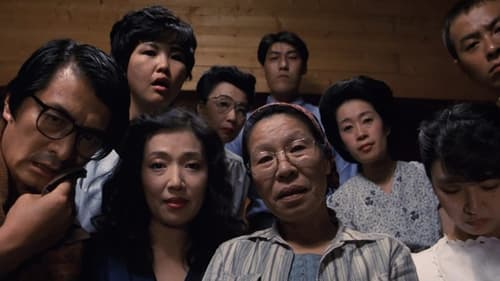
Old People's Club Chairman
When Wabisuke's father-in-law unexpectedly dies, the family goes through a series of random events and occurrences as the funeral unfolds over three days in their home.

Village chief
The story of Sanshiro Sugata, a young man who wants to learn the new art of judo. A wise teacher reveals to Sanshiro that judo is not merely a means of combat nor a demonstration of physical skill, but an art which reveals the artist to himself.

Boss Izumasa
Lesser, but still modestly entertaining sequel. Wakayama is wonderfully bastardly here, but has to do without Chicago bros. Yamashiro & Watanabe and the film is just that much less fun. It's also a little bogged down by an out-of-place environmental message. In return one does get Willie Dorsey (who would go on to lose his balls in The Street Fighter) in a rather big role as Capone's right hand man. There's a legion of other gaijin as well, Osman Yusuf among them of course. The rating could be a notch higher on a good day.

A coward boy fencer becomes invisible and matchless through a magic pill.

Third and last movie in the Yakuza Hijoshi trilogy.

1864. Samurai Shinbei is sent in a secret mission to Ezo, in the North of Japan, to stop riots of villagers commanded by Jirozaemon. A Russian count's daughter, the village leader's daughter and a secret treasure add up to the adventure.

Lord Oda Nobunaga gains control of nearly all of Japan and tries to enlist the aid of Magoichi and his 3.000 gunners.
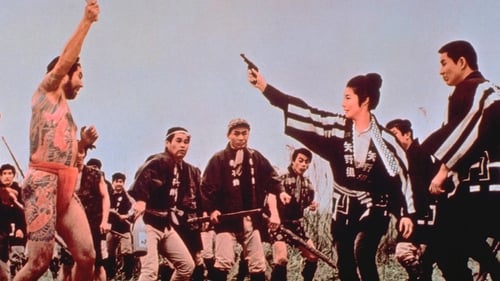
The industrual revolution comes to Japan with the introduction of the railroad system. This led to clashes between boatmen, who livihoods are threatened, and the railroad construction workers. Oryu the Red Peony returns to her home in Kumamoto to accept her position as second generation leader of the Yano Family. But the ceremony is interrupted by fighting between local boatmen and railroad works. And it seems a rival family is pulling the strings behind the clashes.
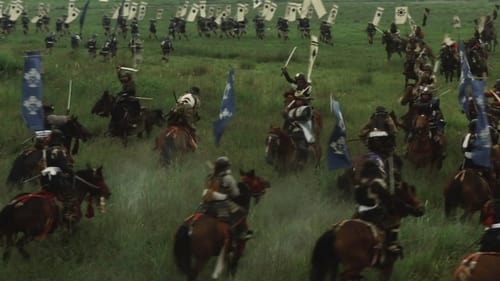
Nagasaka Yorihiro
Kansuke Yamamoto is a samurai who dreams of a country united, peaceful from sea to sea. He enters the service of Takeda, the lord of Kai domain. He convinces Takeda to kill the lord of neighboring Suwa and take his wife as a concubine. He then convinces the widow, Princess Yu, to accept this arrangement and to bear Takeda a son. He pledges them his life. He then spends years using treachery, poetic sensibility, military and political strategy to expand Takeda's realm, advance the claim of Yu's son as the heir, and prepare for an ultimate battle with the forces of Echigo. Has Kansuke overreached? Are his dreams, blinded by love, too big?

Shinkichi, a peasant employed as a cloth-dyer, has a dream: in the midst of the civil war which ravages Japan, he hopes to revive the long-banned custom of the Kyoto Gion Festival, and by doing so, bring together the warring clans and rampaging brigands in peaceful celebration.
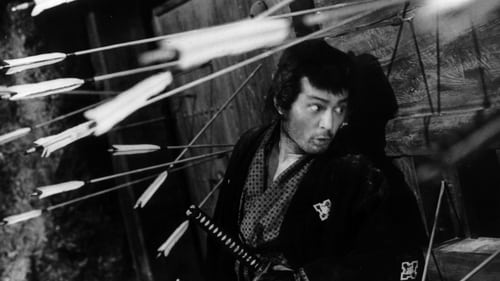
Sachu Mizoguchi
A pair of down-on-their-luck swordsmen arrive in a dusty, windblown town, where they become involved in a local clan dispute. One, previously a farmer, longs to become a noble samurai. The other, a former samurai haunted by his past, prefers living anonymously with gangsters. But when both men discover the wrongdoings of the nefarious clan leader, they side with a band of rebels who are under siege at a remote mountain cabin.

Tetsu, is a honourable and noble yakuza caught in a conflict between rival clans, and obligations each has toward their yakuza boss and brothers. A railroad line brings changing times to a community. Because Tetsu can't stand by and allow a bunch of yakuza men to molest women, it forces him to battle it out with a knife wielding rival, the unfortunate incident leads to his boss losing face and him having to leave the family to protect it. But the rival family won't stop until they destroy Tetsu who will risk life and love for his brothers.

The Domain: Where The Blade Enters
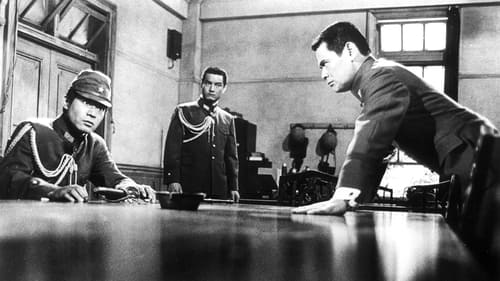
Minister of Agriculture and Forestry Tadaatsu Ishiguro
Following the detonation of the atomic bombs on Hiroshima and Nagasaki, the Japanese military and the government clash over the demand from the Allies for unconditional surrender. Minister of the Army Anami leads the military officers who propose to fight on, even to the death of every Japanese citizen. Emperor Hirohito, however, joins with his ministers in asking the unthinkable, the peaceful surrender of Japan. When the military plots a coup to overthrow the Emperor's civilian government, Anami must face the choice between his desires and loyalty to his Emperor.

Saburo Kitajima, one of Japan’s most famous Enka singers, returns in the fifth of the Kyodai Jingi series. During the early 20th century, Ryuji from Asakusa, a wandering yakuza, joins the Narumi Family in Yokohama. However, when he confronts Shiotaro, the head of the rival family, Ryuji takes a liking to him. He ends up leaving his current family, and becomes close to Shiotaro like brothers swearing to become a full-fledged yakuza.

松前屋五郎蔵

Sasaki Kojiro tells the story of the genius who staked his love, glory, and life on a duel with the supreme master of the sword, Miyamoto Musashi (Tatsuya Nakadai). Oscar winning Hiroshi Inagaki directs this epic motion picture based on Genzo Murakami’s fascinating story. Despite his humble birth, the orphan Sasaki Kojiro (Onoe Kikunosuke) is determined to become the foremost swordsman in all Japan, a title that traditionally belongs to a nobleman. At fencing school, young Kojiro receives the contempt of his classmates because of his superior swordsmanship. When rumors of the upcoming civil war between Toyotomi and Tokugawa clans spread, Kojiro leaves the school and sets out, seizing every opportunity to realize his dream.

Hikoemon Yahikoya
Nemuri Kyoshiro discovers a conspiracy centering around a band of disgruntled samurai wanting to avenge the death of their sensei, a political reformer that pushed for better provisions for the lower classes until he was assassinated by Shogunate agents. Their plot, to set fire to the oil refineries of two rich merchants and unleash a raging inferno that will hopefully burn down the Edo Castle.

Famous enka singer Saburo Kitajima stars as Katsuji, a traveling craps artist who finds great camaraderie on the road.
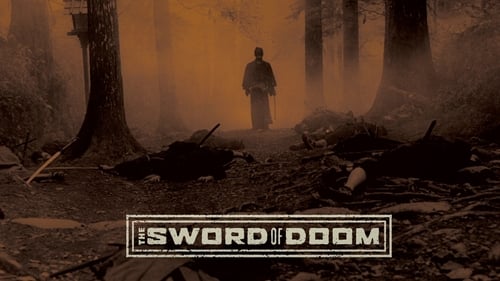
Dansho Tsukue
Ryunosuke, a gifted swordsman plying his trade during the turbulent final days of Shogunate rule, has no moral code and kills without remorse. It’s a way of life that leads to madness.
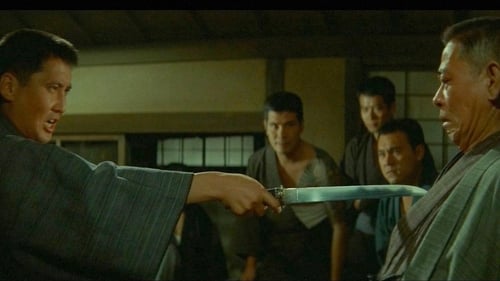
A story of manly life and the beauty of conjugal love. A story about a man and a woman establishing a family of longshoreman, centering on their love and struggle.

Shuzen Kagemura
Hanpei is a gentle young samurai that loves flowers. One day, he witnesses an old man's quick draw of the sword. He is so impressed that he becomes the old man's pupil. Soon, Hanpei's skill of sword comes to attention of his lord. The lord orders him to assassinate a man...

The film is set in Kyoto at the end of the Tokugawa period, when there is a fierce clash between the supporters of the Emperor, who are fighting for the overthrow of the Shogunate, and the Shinsengumi squad, who are chasing them. Suddenly, a mysterious masked warrior appears, on a white horse he is called Tengu from Mount Kurama and he opposes the Shinsengumi.
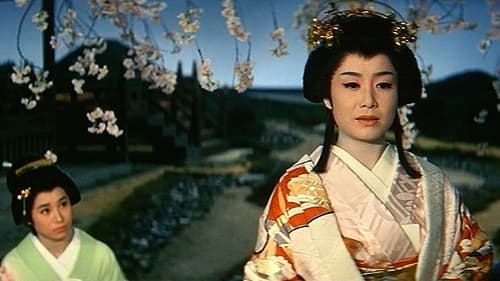
Young Sentaro struggles to avenge the murder of his younger sister Osuga and their father.

Nezumi Kozō is the nickname of Nakamura Jirokichi, a Japanese thief and folk hero who lived in Edo during the Edo period. His exploits have been commemorated in kabuki theatre, folk songs, jidaigeki, and modern pop culture.
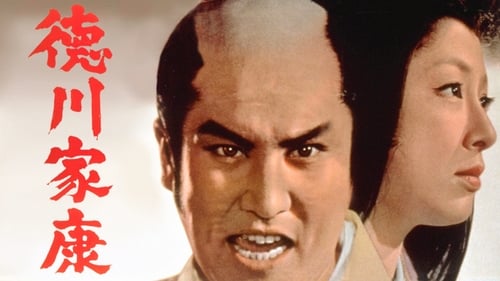
In turbulent 16th-century Japan, the leaders of a minor fief have their child taken from them as a political hostage. His mother and his clan endure years of tribulations until he can return.

The Yagyu Family have been teaching the Shinkage style of fencing for generations. Now a new fencing school has opened in Edo, claiming to be the true Shinkage style. Yagyu Jubei faces his biggest challenge yet when the master of the new school claims he is the legitimate successor of Shinkage and tries to take the Yagyu's political power.

In Osaka during the Edo period, ruler Sanada Yukimura was in losing position, fearing Toyotomi's blood descendents would end, he impregnates one of five Shinano female ninja with the seed of Toyotomi Hideyoshi in hopes of continuing the bloodline. Princess Sen and the five female ninja escape from Osaka castle by blending in with the handmaidens. Lord Tokugawa Ieyasu who was supposed to rule all under the heavens was informed of this secret. So Ieyasu orders five samurai of the Iga Ninja clan (brought by Hattori Hanzo) to stop the Toyotomi bloodline by killing the Kunoichi ninja. An attack of ninja magic arts unfolds in a battle of the sexes.
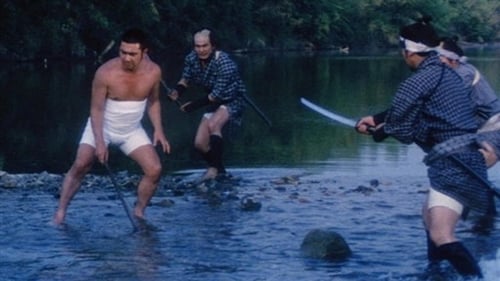
Boss Bunkichi
Blind masseur Zatoichi is nursed back to health by a young woman after he is shot by a gang member. Zatoichi, who had come to the village to repay a debt, now feels further indebted. He commits himself to use his amazing sword skills to help the young woman's father, whose river-crossing service is under attack by the same gang responsible for Zatoichi's wounds.

Misawa Ihei (Nagato) is traveling with his wife Tae (Iwashita Shima) who abhors the practice of sword fighting for prize money. Tae is the daughter of the clan's chief counselor who married the low-ranking Ihei to avoid becoming the clan lord's mistress. Into the mix comes Oba Gunjuro (Tetsurō Tamba), a mysterious ronin who will do anything for money. This leads to a fitting climax as the forces of hate and love converge while the couple attempt to break through the border!

The third part of the story about feudal boss Jirocho and his underlings.

In the fourth installment, Musashi's potentially greatest opponent Kojiro jumps in and out of the story at the oddest and most coincidental moments. As his great love Otsu has succumbed to madness. Musashi then sets off to beat the functionaries of a treacherous clan in an arranged duel. 73 against one. Boastful Kojiro watches, secure in the knowledge that only he is a worthy opponent.

A sadistic Daimyo (feudal lord) rapes a woman and murders both her and her husband, but even when one of his own vassals commits suicide to bring attention to the crime, the matter is quickly hushed up. Not only will there be no punishment, but because the Daimyo is the Shogun's younger brother, he will soon be appointed to a high political position from which he could wreak even more havoc. Convinced that the fate of the Shogunate hangs in the balance, a plot is hatched to assassinate the Daimyo. The two most brilliant strategic minds of their generation find themselves pitted against each other; one is tasked to defend a man he despises, and has a small army at his disposal. The other is given a suicide mission, and has 12 brave men. They are the 13 Assassins.

This is one of the most powerfully effective ninja films that dispenses with the silly magic of earlier efforts, and concentrates on an excellent story with expert fighting. Sena Denemon is the rarest of government officials, a man of integrity, sent on a mission to uncover the corruption that ran rampant during the Edo Period. Refusing bribes, and willing to put his life on the line to raise his son properly, heinfuriates the corrupt Inspectors; thus endangering his own life. Along with his two trusted vassals, he makes a brave effort to alert the Shogun to the plot which is being carried out. After the battle, his son Ichitaro joins the Chichibu ninja group in order to master fighting so he, too, can fight the forces which have brought about so much suffering.

The tale of real-life Yakuza boss Shimizu Jirocho is told from his earliest beginnings as a gambler on the road as he forms his gang and sets out on the path to fame and fortune. One of the smartest and strongest of all the gang bosses, he went on to survive the end of the samurai era and become a successful businessman. But first, he must survive against all odds in order to build his reputation and develop his strength. Powerful portrayals of the group are led by the great Tsuruta Koji with help from the likes of Matsukata Hiroki.
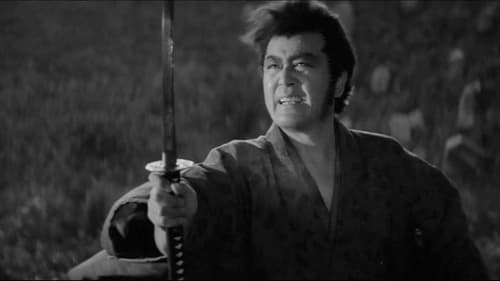
This gripping historical drama depicts a clash of swordsmen, secret government spies, mysterious thieves, robbers and roving samurai who want to take possession of the “Sword of Heaven and Earth.” The film stars the father and son of Jushiro Konoe and Hiroki Matsukata.

Kono Banzaemon
This Japanese action-adventure is set in the 17th century when all forms of swordplay were banned. One fighter, an excellent swordsman believes the law is unfair. His brother keeps his opinions about the law to himself. The swordsman vents his frustration by cutting off the thumbs of an enemy. The fighter is then banished. To live, he becomes a thief. To restore the family's lost honor, the other brother is forced to challenge the fighter to a duel.

Naota Ryohei
In the third installment of Yoshikawa's novel Musashi, things continue from the 2nd film at the end of battle, where Miyamoto continues on a mission of learning; with the introduction of his arch-rival Sasaki Kojiro; and lastly the large cast of characters rendezvouses for a fateful finale.

While on his journey through the countryside of Japan, Shingo encounters many people whose lives have been affected by his actions. Though the many duels he fought were intended to bring justice to those who sought to do evil, he is faced with the knowledge that his victories have also caused suffering amont the family members of his victims-leading him to question his life's philosophy.
This superb film is the final chapter in this part of Shingo's story. A fitting tribute to his quest to be the supreme swordsman.
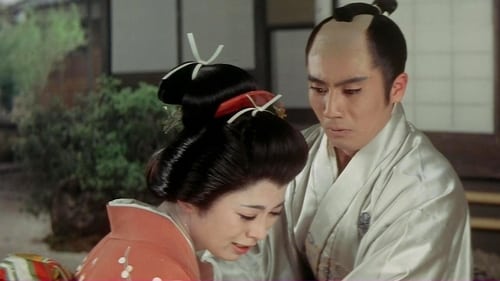
Yokota Bitchu no kami
The shogun's vassal Harima Aoyama and a chamber maid are in love with each other, but they cannot be together due to a difference of their status. Soon, an offer of marriage is brought to Harima. Trying to test his love, Okiku breaks one of the plates of the family treasure of the Aoyama family, but Harima doesn't notice. However, someone surrounding her witnesses the moment Okiku breaks the plate on purpose.
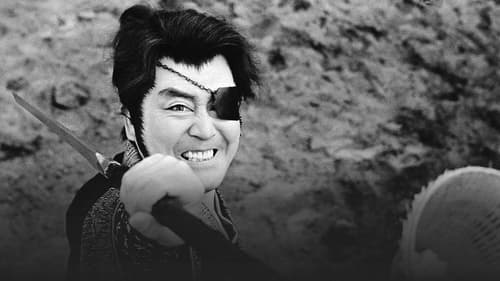
When the country is in peril, Lord Yagyu Tajima summons his son Yagyu Jubei to retrieve the mystical Yagyu Scroll in order to save all of Japan. This time, Jubei must stop the evil plot of Lord Hayato-no-sho, who secretly plans on overthrowing the Shogunate. This is the most exciting film in the long-running series about one of the greatest swordsmen in Japanese history. Konoe Jushiro gives one of his finest performances in this classic tale.
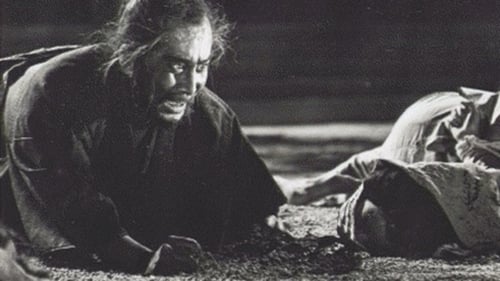
After a salary-man's fiancée attempts suicide, he recounts his gruesome family history which saw generations of his ancestors suffer and sacrifice themselves for the sake of their cruel lords.
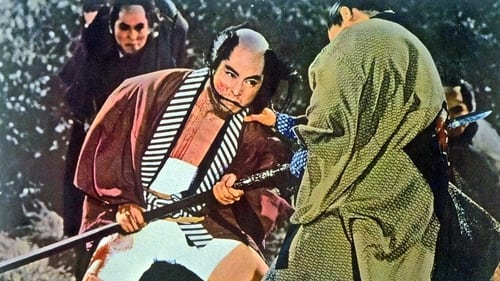
Gonza was a handsome young laborer, a footman and spear-carrier, working hard for his meager wage. All Gonza wanted was to marry his young sweetheart, but despite their mutual poverty, her status as the daughter of a samurai blocked their path to happiness. A chance opportunity to achieve samurai status would come one day, but Gonza will regret trusting the so-called honorable samurai who extended this fateful offer, and the terrible price he'd pay, fighting for his life in one of the most blood-spattered samurai battles ever filmed.

In the fifth installment, Yagyu Jubei must prove the innocence of his family who is suspected of conspiring to take Shogun's life.
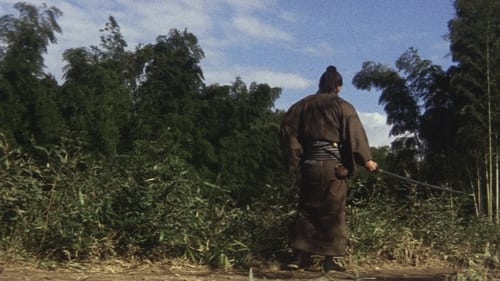
Tomijirô Hirosawa
As winds of change sweep Japan, an honest man joins the Shinsenhumi out of admiration for its leader and because he wants to live and die as a samurai. However, as his involvement grows, reality and idealism come into deadly conflict.

Jebei Ôkuniya
Fifteen years after Ishida Mitsunari lost in the battle of Sekigahara, Tokugawa Ieyasu foresees his unavoidable battle with Toyotomi Hideyori and goes into Fushimi Castle. At the night, Hattori Hanzo, the leader of 36 Iga members who were performing as guards of the castle, perceives the existence of a ninja and captures the mysterious sneaker.

Shinjiro is a rambler, a single sword carrying lone wolf with only his fighting skills to protect him. He doesn’t know where his road leads, only that he must find his lost sister, and the ronin who stole her away. The ronin that Shinjiro has sworn to kill. On the road he’ll find his sister and test his blade against his bitter enemy. He also encounters a lost boy searching for his father, a boy he will swear to protect, and find his own lost love, a daughter of the yakuza who draws him into a frenzied and bloody battle between rival yakuza gangs for the control of a frightened town.
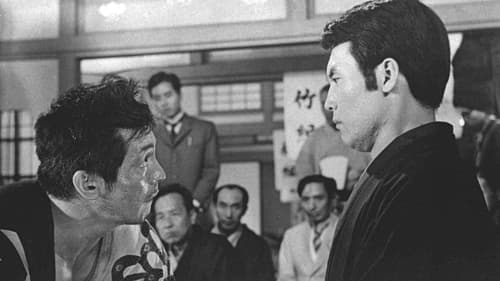
The film takes place at the junction of the two eras of Meiji and Taisho. Sakata Sankichi, an uneducated zori sandal maker, becomes a professional shogi player through his genius shogi skills and lives a fanatically devoted shogi game supported by the love of his family. This is the 3rd adaptation of Hideji Hojo's famous play.

Naota Ryohei
The remake of Yoshikawa's novel continues with the second installment in which Takezo, soon to be Miyamoto Musashi, emerges from the Himeji Castle after three years of intense contemplation and philosophical study and starting on his epic quest to complete his skill in the Way.

Kamio a mistreated samurai clerk of Edo Castle and ronin (“Sir Quarrel”) Ibara, take up a vendetta against 17 wicked castle men.
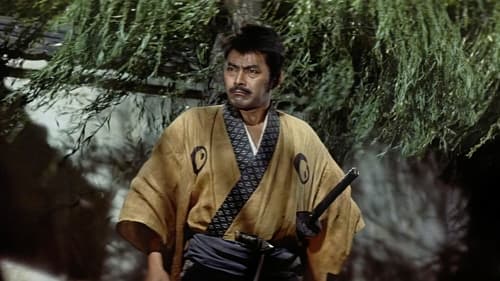
The story tells of a group of samurai who were left leaderless (becoming ronin) after their daimyo (feudal lord) was forced to commit seppuku (ritual suicide) for assaulting a court official named Kira Yoshinaka, whose title was Kōzuke no suke. The ronin avenged their master's honor after patiently waiting and planning for over a year to kill Kira. In turn, the ronin were themselves forced to commit seppuku for committing the crime of murder.
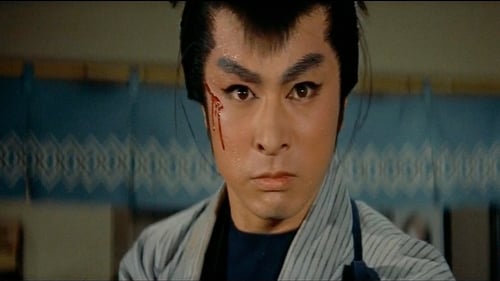
Three young yakuza, Fujitaro, Matsugoro and Kanjuro, travel the country fighting evil.

Chuji and his family become the primary target of gangs in Nikko headed by Hasshu marshal Nakayama and boss Sukegoro Iioka. Chuji is then aided by boss Shigezo Sasagawa, Ishimatsu, and a few young yakuza.
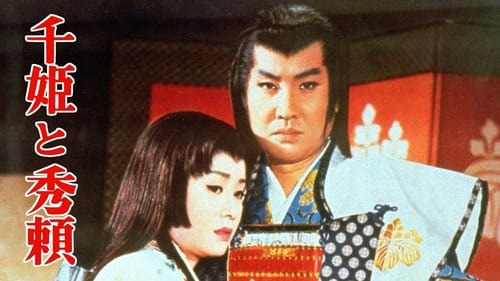
From the late 1500's through the founding of the Tokugawa Shogunate many battles were fought as the great warlords vied for power over the nation. Princess Sen, a daughter of Tokugawa Ieyasu, is caught amidst the family feud between the Tokugawa and Toyotomi families. When her father Lord Tokugawa Ieyasu attacks her husband Toyotomi Hideyori's castle, her life takes a sudden turn for the worse. Will she ever find peace in her life again? One of Hibari Misora's most memorable performances, a movie you will never forget!

In the third, and final chapter of this epic tale, handsome swordsman Genji helps a vulnerable princess who is in search of a missing scroll that belongs to the Shogun. This is one of the most highly regarded trilogies featuring a youthful Nakamura Kinnosuke in one of his best roles. This was Kinnosuke at the height of his career, with charm, honor and a vicious sword. If you enjoyed the first two films in the series, you can't miss the exciting conclusion. Even without know-ledge of the first two films, this movie stands on its own with great action throughout!
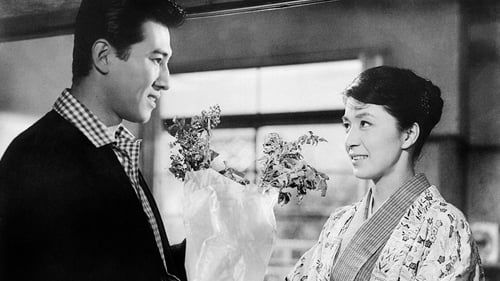
Drama about the lives of the five daughters and daughter-in-law of a store owner.

Young lord Saburo Nobuyasu struggles to find comfort in life. His arranged marriage to Tokuhime, daughter of one-time family enemy Oda Nobunaga, provides little happiness. His manipulative mother adds further complications through her constant interference and attempts at defeating the Nobunaga family.

Namie's back in trouble, after getting snatched by an evil gang in search of the treasure. Kirimaru sets out to rescue his sweetheart and falls in with a band of pirates also hunting the hidden stash.
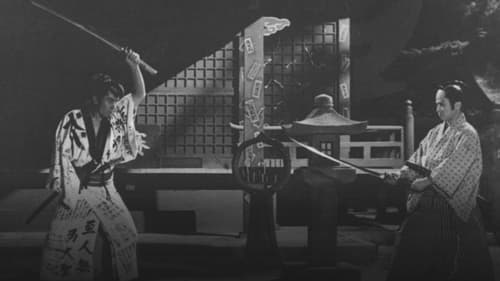
Tange Sazen interferes with an evil plot against the Iga Yagyu family.

Magistrate Kinshiro fights with a group of villains plotting the assassination of the Shogun in Edo.

During the middle of the Kanei Period (1624-1644) Japan was in the early stages of its most peaceful era. This left a large number of unemployed samurai with nothing to do, and their morale suffered. In order to raise their spirits, the Shogun's Chief Advisor suggests that they hold a "Festival of Swordsmen" in the Shogun's presence. Problems arise when some of the martial artists bring their personal grudges to the competition. When Busshi Shirogoro (OTOMO) meets the daughter of the late Lord SANADA Yukimura sparks fly as she tries to use the competition to carry out her vengeance against Shogun Iemitsu.

1716, Yoshimune becomes the 8th Shogun as high Shogunate officials are attacked. While the government tries to keep these incidents under wraps, they must take any means possible to get to the bottom of this mystery and find out who is behind them.
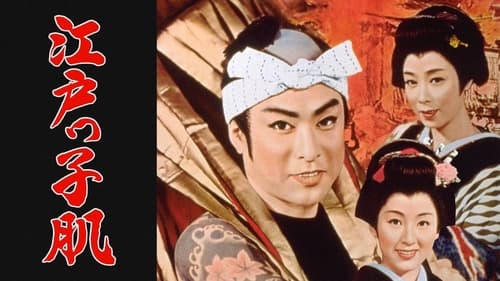
Action and adventure abound in this story of friendship between two rival firefighters, Kichigoro and Jirokichi in old Japan. When Mukai Sadayu, the vassal of Kaga Clan's accounting officer, Shinagawa Daihachi demands that Omon serve him tea in his mansion and she refuses, the clan's samurai abduct her setting in motion a series of events that will bring the two firefighters into a world of danger and excitement. Jirokichi, leader of the Edo firefighting team "Ha-gumi" must first rescue Omon from the clutches of the vile Kaga Clan's retainers.
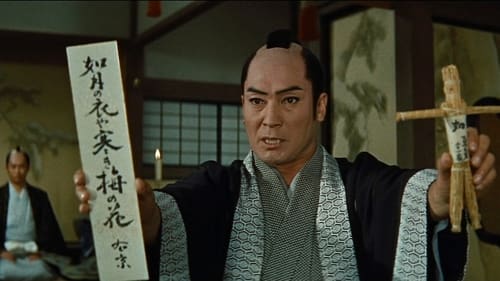
The serial killing of a samurai each night by strangulation at various temples confounds investigators and brings a chill to the residents of Edo. With the capital on edge, master crimefighter Kondo Umon is brought in to try and solve the case. His illustrious career aside, Umon must risk his own life, time and time again in order to bring the culprit to justice. This mystery will keep you guessing until the exciting climax. Umon has a flair for the dramatic and will hopefully solve the case before more innocent victims have their lives claimed!

Michiiku Itamiya
During the raging war between the Toyotomi and Tokugawa clans, the swordsman Mohei (whose family has been completely decimated) is recruited by Toyotomi to overcome the seat of power, Osaka Castle. Mohei's daredevil skills will be put to severe tests.
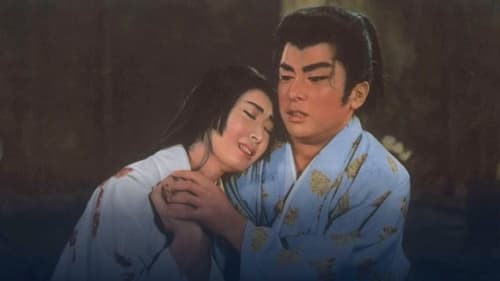
In 17th century Japan, Young Lord Masato returns after years abroad to find everything changed: his peace-loving father has died in what he soon finds to be mysterious circumstances, and his mother's married to his uncle, whose ruthless ambition is causing turmoil in the kingdom. Not knowing who to trust, Masato feigns madness, vowing to get to the truth, even though his act causes distress to the girl he loves, who's waited for him all these years. The ghost of his father turns up now and then to show him the way. Meanwhile a peasant revolt is brewing... It all ends tragically.

Detective Hanshichi (Kataoka Chiezo) solves 3 mysterious murder cases. Great story and an impressive all-star cast, a must see!

Chobei Kagaya
Set in the middle of the Edo period (1603-1867), this tragic love story takes its cue from a celebrated historical case tried by magistrate Tadasuke Ooka, whose shrewd legal decisions became the stuff of legend. Okuma Shirokoya, the daughter of a lumber merchant in Edo (today’s Tokyo), embarked on an affair and was executed after conspiring with her maid to murder her husband. (Source: https://festival.ilcinemaritrovato.it/en/proiezione/shirokoya-komako/)
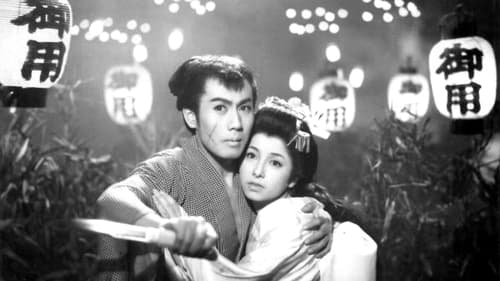
The film depicts the scarring of Yosaburo at the hands of yakuza thugs who catch him with mistress of the gang boss. Despite the physical and emotional scars he now carries with him, Yosaburo falls for a young noblewoman. The rest of the film follows the two as they fend off attacks from gangs and the police.

The exciting story of Jirocho and his yakuza gang that controlled the area of the Tokaido during the latter days of the samurai era. Awesome fighting from Katsu Shintaro as One-Eyed Ishimatsu highlights this great tale taken from Japanese history!
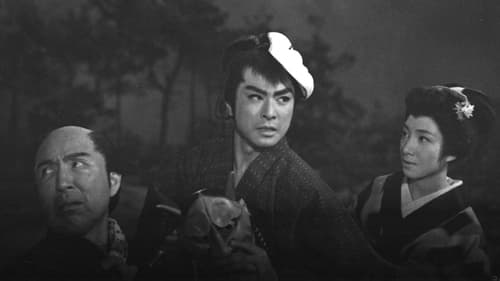
A kindhearted wandering gambler named Hajiro gets involved in a crisis of a village as he passes through and decides to lend a sword in hopes to rescue them.

Magistrate Ooka and a samurai fight against evil forces.
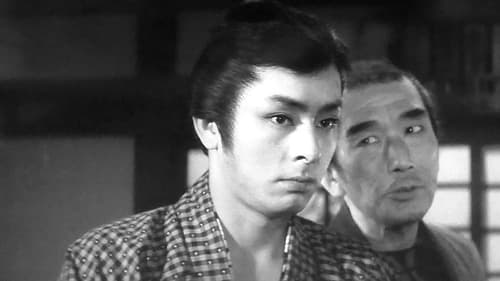
A dashing edition with fights , love, and laughter, in which the sorrows and joys of the guiltless world are colored by the guiltless travel crow, Ayame 's Gantaro, with the turbulent and exciting Wakizashi Hitoshi .
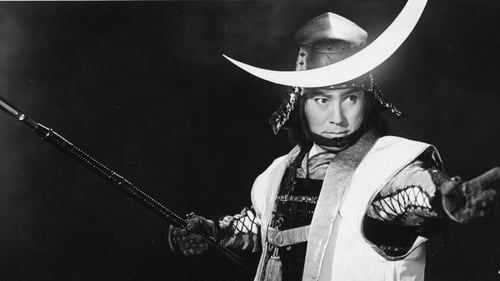
This subversive period film features a hotheaded young samurai, Kurodo, who threatens to commit harakiri in response to the humiliation meted out to his family by the Shogun. The film critiques the inhumanity of feudal obligations, and Uchida’s direction slyly satirizes the contemporary cinematic audience, whose taste for onscreen bloodshed is mirrored in a crowd gathering to watch the protagonist’s planned suicide. The Master Spearman is imbued with Uchida’s characteristic blend of dark humor and stylized action, and Ryutaro Otomo gives an admirable performance in the lead.
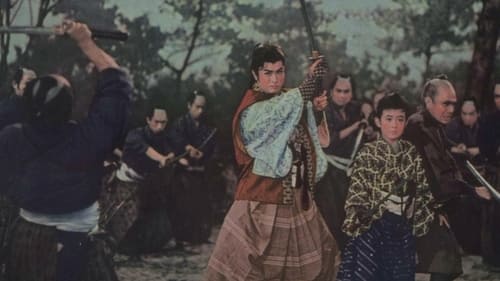
The adventures of Aoi Shingo continue. Shingo is finally given permission to officially meet his father, the Shogun. However, his journey is disturbed by those who wish to claim his life. This is the third part of "THE 10 DUELS OF YOUNG SHINGO", following the first 2 parts (which were actually done as one movie). The tension mounts as young Shingo must face obstacles the like of which he had never before seen. And, can he avenge the death of his master? The man to whom he owes everything.
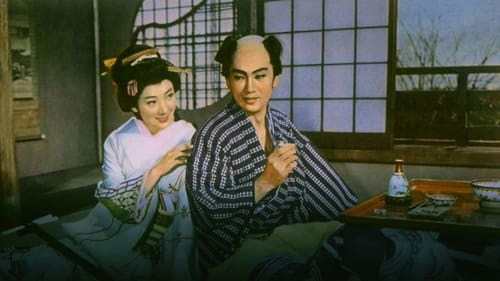
Firefighter Sanji learns the secret of his birth.
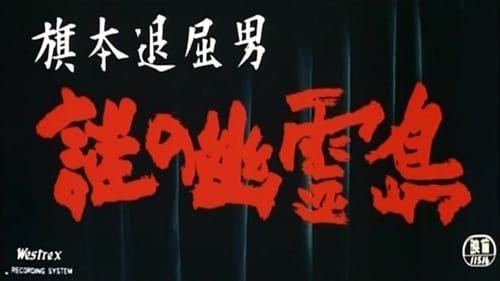
Part of the Bored Hatamoto series. The most popular samurai in Edo, Saotome Mondonosuke, known to most as the "Bored Hatamoto" is the only one who can save the shogunate from the dastardly plot to take over the country.

While on the road, famed Yakuza Boss Jirocho is falsely accused of starting a peasant's uprising and chased by the law. Meanwhile, one of his henchmen in an attempt to raise money for the Boss gambles away not only all their funds, but their clothing as well. Jirocho, famed for his honesty and integrity must take on the challenge of rival gangs while trying to elude the government's officials at the same time. Things really heat up when the most famous of all Yakuza Bosses, Chuji of Kunisada gets involved. Will he team up with his old friend or is gang warfare about to erupt?
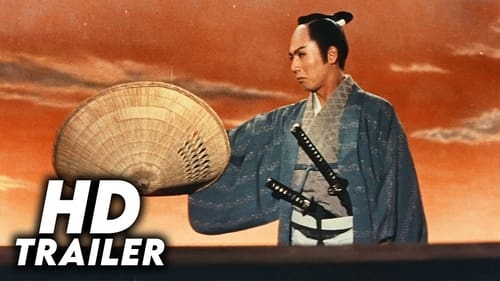
Two amiable samurai wind up on opposite sides of the vendetta between Lord Asano's retainers and the family of Lord Kira that led to the famous revenge of the 47 Ronin.
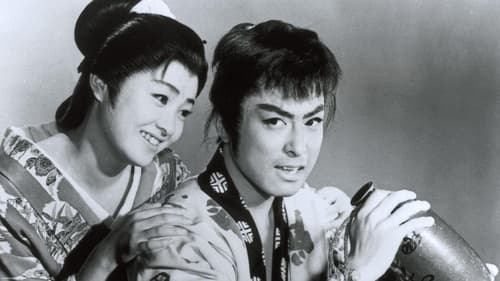
Bunzaemon Kinokuniya
A man is brutally murdered and his famed shamisen (a three-stringed musical instrument) called the "Yamabiko" stolen. Prince Kogenta swears to avenge his father-in-law's death and retrieve the family heirloom.

Saibei Kamon

The adopted son of an Osaka courier falls in love with a prostitute and, discovering that she is about to be purchased by a client, steals money from his employer to redeem her. Hunted criminals, the two young lovers take flight to Yamato, but, as in Chikamatsu's other domestic tragedies of love and duty (known as sewamono), they must be pursued and their passion destroyed by death. Favourite Uchida themes, such as the indenturing of a prostitute (cf. YOSHIWARA; A BLOODY SPEAR AT MT. FUJI), and his characteristic emphasis on performance and theatrical artifice re-emerge here; but the daring device of having Chikamatsu appear as a character - not unlike having Shakespeare interpolated into a film adaptation of one of his plays - is just one of many surprises this remarkable film holds. “Extraordinary” (Donald Richie).

Early film directed by Eiichi Kudô.
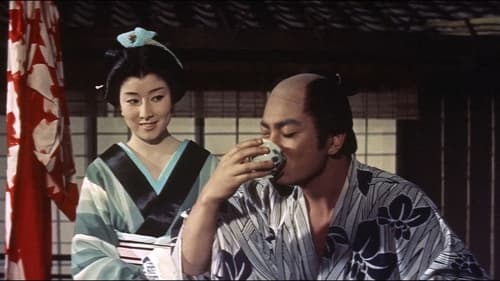
Legendary yakuza Shimizu Jirocho and his 28 henchmen travel the unruly path from a 'Fire Festival' in Akiba to a decisive battle by the Fujigawa.

Wakisaka

Film directed by Kenji Misumi.

Saotome, a sword master and guard of the Shogunate, pursues the mystery of a deadly aerial weapon that is responsible for the multiple deaths in town.

The film won 1959 Blue Ribbon Awards for best actor Raizo Ichikawa and for best cinematography Kazuo Miyagawa. The film also won 1959 Kinema Junpo Award for best actor Raizo Ichikawa.

During the 1200's, legendary Buddhist monk Nichiren returns from his studies to lead Japan out of moral crisis and prepare to fight Mongol invaders by creating a new form of Buddhism. He runs afoul of the existing Buddhist sects and their government supporters and is persecuted. Can Nichiren persevere before the Mogol fleet reaches Japanese shores?
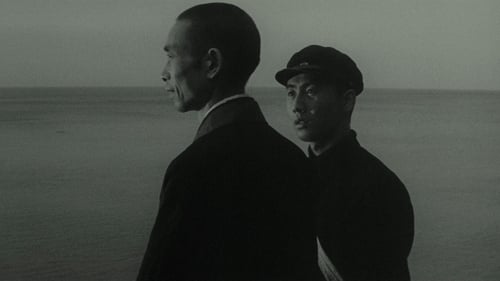
Priest Zenkai
Learning of his family's collapse, acolyte Goichi, sent to study silently at the Temple of the Golden Pavilion, must endure acute psychological distress.

As a result of a superstitious belief that twins bring bad luck to the family, newborn twin princesses are separated. Yukihime, who was sent away to be raised by a yakuza family in Edo, returns home after many years to settle an old score.

Mochizuki Sobei
This is the second installment of the trilogy based on Japan’s greatest novel “The Great Bodhisattva Pass”, following the life and times of bloodthirsty samurai, Tsukue Ryunosuke. Blinded in an explosion and further injured from a fall, the master swordsman is taken in by Otoyo, a woman who falls in love with him. Under Otoyo’s dedicated care, Ryunosuke’s physical and emotional wounds seem to heal. However, deep inside, the demons that drive him to kill yearn to resurface. Meanwhile he is being pursued by Utsugi Hyoma, a young samurai seeking to avenge his brother’s death at Tsukue’s hands. Hyoma is being aided along the way by the clever thief Shichibei.

One of Japanese folklore's most popular characters is brought to life on the silver screen in this terrific version of legendary Demon slaying Peach Boy.

Rokuemon - Heiichiro's grandfather
1957 drama from director Kôzaburô Yoshimura
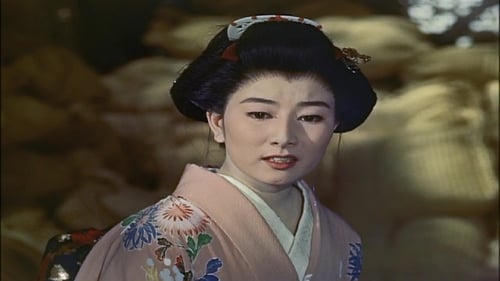
From the pen of Yoshikawa Eiji comes this exciting story. The Naruto Strait separates Tokushima from the islands of Awaji and Honshu. On Tokushima the mad lord dreams of conquest and forges a bloody revolt against the Tokugawa shogunate. A mysterious swordsman named Noriyuki Gennojo has crossed Naruto’s waters to uncover the Awa clan’s secrets. He puts his life on the line after finding a testament of Awa’s secrets, written in blood by a dying man. Joining Noriyuki are a female ninja who loves him, and the beautiful daughter of an enemy who’s sworn to kill him. Awa’s defenders willl stop at nothing to prevent the blood-soaked letter from reaching the shogun.
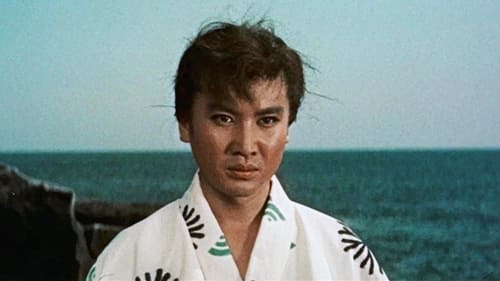
Shôgen Unno
As Part I opens, Jubei (Denjiro Okochi), the best of sea skippers, is unable to overcome the stormy seas of Luzon. All hands on board the Kannonmaru were lost except for Shinkei, who alone made his way to land & eventually home to inform his grandson Jiromaru (Kinnosuke Nakamura) that his father Jubei met with disaster. Young Jiromaru tells his grandfather that he doesn't want to be a skipper like his father, but wants to go to Kyoto and become a samurai…

Period drama based on the novel by Saisei Murō.

In the Tokugawa Era, the clan of Lord Yagyu has hidden away three scrolls containing clan secrets which, if revealed, would cause revolution and disaster for the clan. The information is divided among the three scrolls, all of which must be possessed for the secrets to be understood. When Princess Yuhime steals the scrolls, Tasaburo, a samurai with magical powers, and his brother Senshiro are sent to retrieve them.

Period drama directed by Yasushi Sasaki.

Period drama directed by Yasushi Sasaki.

A princess in disguise, Oshichi launches an investigation to reveal the truth about the disappearance of young women in Edo.

During a time of war, Lord Ogata is betrayed by two of his closest vassals and killed by his enemy, Sarashina Danjo. Ten years later, Lord Ogata's only living heir, now a skilled ninja, uses sorcery to avenge the murders of his parents.

This 1956 adaptation of the novel with the same title puts more focus on the characters and their interactions than the previous version.

It is brother against brother in this tale of love and betrayal within the famed Yagyu clan. In one of their earliest films together, superstars Ichikawa Raizo and Katsu Shintaro are magnificent as the two finest young swordsmen in the clan. As they vie for the hand of a beautiful woman their loyalty comes into question during an attack on their lord. When one of them masters the secret technique taught to him by Miyamoto Musashi, it leads to bloody violence that can tear the clan apart! Filled with superb swordplay this rare classic is not to be missed!


This adaptation of a Hideji Hojo novel, about the historical uprising of the Kuroda clan in 1633, is told through the eyes of retainer, Daizen. As his clan’s new leader, Tadayuki, becomes increasingly militant in his opposition to the Tokugawa shogunate, Daizen is forced to reconcile his loyalty to the clan with his loyalty to Tadayuki, who seems dead set on entangling the clan in destructive conflict. The Kuroda Affair’s mise-en-scène is said to have influenced future Toei director Eiichi Kudo. The film also features two of the greatest stars of Japanese period cinema, Chiezo Kataoka and Ryutaro Otomo.

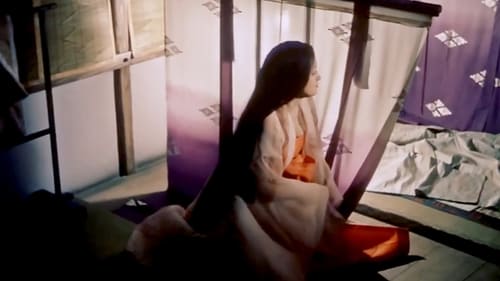
Special Forces commander Captain Tadamori returns to Kyoto after successfully defeating the uprising of pirates in the western sea of Japan. But because the high courtiers dislike career soldiers gaining power and influence, they ignore the will of ex-Emperor Toba and refuse to reward the captain. Reward recommender Lord Tokinobu is punished, and the captain sends his son Kiyomori to the Lord's residence, where he falls in love with Tokiko, the Lord's daughter. Meanwhile, Kiyomori finds out that he is possibly the ex-Emperor's son... Written by L.H. Wong

Rikitaro and Osayo are popular entertainers who throw knives. They are sweethearts. At one day They help Ocho, who is a beautiful pickpocket when she is attacked by Ronin. in Asakusa, However, they come to be surrounded by doubtful Ronin after that. Moreover, Rikitaro is called to stop by Kajima of Edo-Karo of Nihonmatsu-Han. He calls him a young lord and treats Rikitaro as one, because his young lord, Tetsunojo is missing. Kuni-Garo makes a plan to carry out. Kikumaru, the younger brother of the mother difference in him instead of Tetsunojo, Since Rikitaro is just like Tetsunojo, then, they are convinced that it is Tetsunojo of Rikitaro. Rikitaro and Osayo decide to help Kajima and Tetsunojo. Finally they success to crush Kikumarsu's group.

An early fantasy film starring Tomisaburô Wakayama.
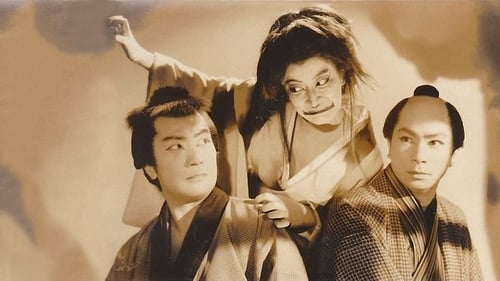
A kabuki actress is murdered. Her pet cat laps its mistress's blood and becomes a demon possessed by the vengeful murder victim.

A Japanese drama featuring the one-eyed, one-armed swordsman

Based on the popular story of the tragic lovers, Onatsu and Seijuro.
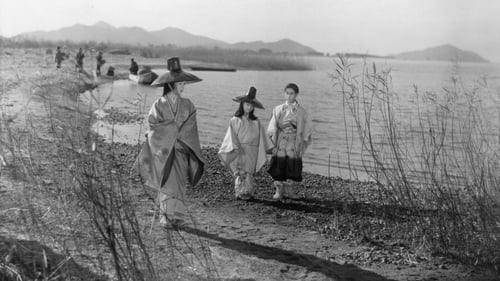
Ritsushi Kumotake
In medieval Japan, a woman and his children journey to find the family's patriarch, who was exiled years before.

First film of the The Black Hooded Man series.

Adaptation of the Riichi Yokomitsu novel.
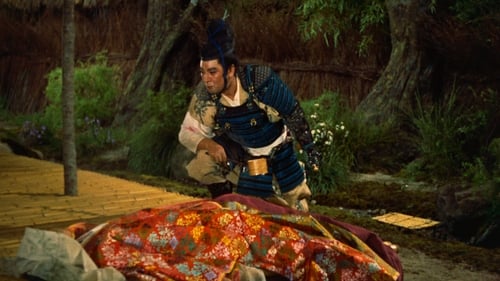
Yasutada
Japan, 1159. Moritō, a brave samurai, performs a heroic act by rescuing the lovely Kesa during a violent uprising. Moritō falls in love with her, but becomes distraught when he finds out that she is married.
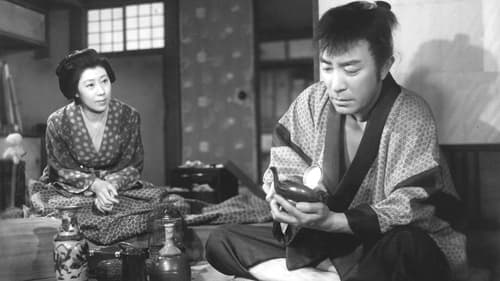
A gripping historical drama that follows the explosive growth of Katsu Kaishu, the hero of the Meiji era, and the interesting human image of his father, Kokichi, who lived for the common people, his neighbors and his children. A film about paternal and maternal love and conjugal love in the creation of mankind, about the healing power of which laughter and tears have. The work that became the last work of the giant star Tsumasaburo Bando.

1953 Hiroshi Inagaki movie.

The first film in the 1953 trilogy based on the long novel series The Great Bodhisattva Pass.
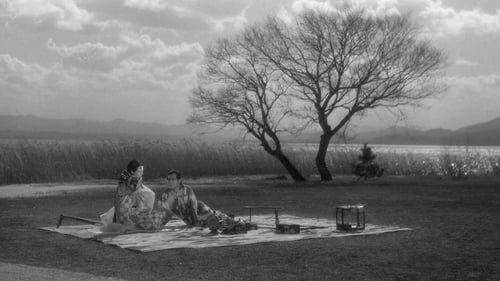
Village Master
In 16th century Japan, peasants Genjuro and Tobei sell their earthenware pots to a group of soldiers in a nearby village, in defiance of a local sage's warning against seeking to profit from warfare. Genjuro's pursuit of both riches and the mysterious Lady Wakasa, as well as Tobei's desire to become a samurai, run the risk of destroying both themselves and their wives, Miyagi and Ohama.

Kaneuri Kichiji
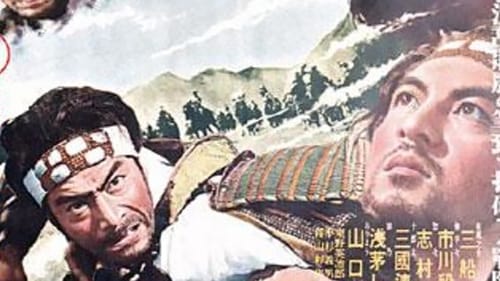
Soldiers Hayate and Yaheiji secretly escape from their besieged castle. Hayate has left behind his lover, Kano. On his way, Hayate is wounded and cared for by O’Ryo, who falls in love with him. But when Hayate accidentally kills her caretaker, he flees, with O’Ryo in pursuit. Subsequently, Hayate's comrade Yaheiji falls in love with Oryo. Kano, the lover left behind by Hayate, believes him dead, and becomes involved with another soldier, Jurota. When Jurota defects to the opposing army, he takes Kano with him. A double set of love triangles has developed, wherein each man and each woman loves one and is loved by another. Finally only combat and self-sacrifice can untangle the weave.

Gotō Matabei is the most able and fierce samurai of the Kuroda clan. However, he gradually dislikes the ruthless personality of Kuroda Nagamasa and leaves the clan. Seven years later, he joins Toyotomi Hideyori's army. Filmed in 1945 and released in 1952.

Odagiri Tosamori

Dedication of the Great Buddha is a 1952 Japanese film directed by Teinosuke Kinugasa. It was entered into the 1953 Cannes Film Festival.

film directed by Tai Katô

Story of a Beloved Wife is an autobiographical work based on Shindo's first marriage. Jūkichi Uno stars as a struggling screenwriter, and Nobuko Otowa stars as the wife who supports him through his early struggles.

Kenkichi Kato
During the war a man is bitten by a creature which looks like a cross between a bear and an ape in the jungle. Later he starts to transform to a monster like creature who kills with his claw like fingers.

Jidai-geki by Nobuo Nakagawa. Most likely a star vehicle for Kanjuro Arashi

A village struggles to survive when the nearby lake becomes barren of fish.

Zen'emon Tanaka
The purple hood reveals the embezzlement of public money by officials. A remake of Masahiro Makino's 1923 film.

Jida-geki by Santaro Marune.
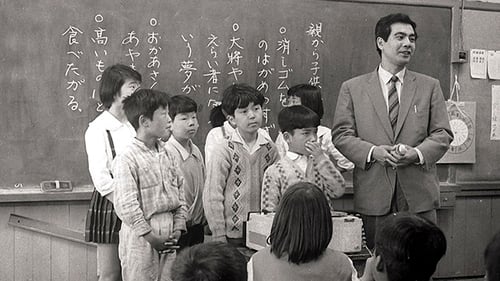
A small-town boy with a learning disability attempts to fit in with his classmates.

A 1946 Japanese film directed by Keigo Kimura.

Heirokurô Numata
During the Taiping Rebellion of the mid-19th century, anti-Qing (Manchu) Chinese forces led by Taiping commander Li Xiucheng march on Shanghai. Although the Western powers are officially neutral, the British consul in Shanghai sides with the Qing imperial government, and counter to his own government's policy he retains American adventurer Frederick Townsend Ward to raise a mercenary force of foreigners in Shanghai and oppose the Taipings. Ward's force is routed, with heavy casualties, but since many of the casualties are British, the British army soon is drawn in on the side of the Qings. The only support for the Chinese comes from Japanese in Shanghai and anti-imperialist demonstrations in Japan. A family drama plays out against this historical background. After a Chinese home is destroyed by careless British shelling, killing the father and crippling a daughter, the surviving son vows revenge but begins to see that his true friends may be the Japanese.
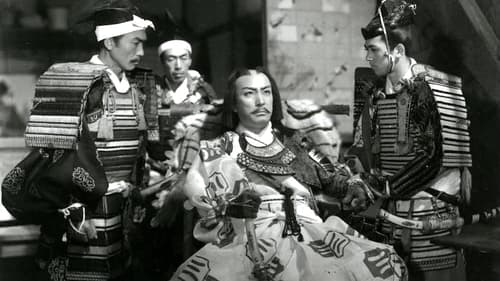
Shôni Tsunesuke
Set in the late thirteenth century, this film depicts the defense of southern Japan led by the Kono clan against the Mongol invasion in 1281.

Matsugoro is a poor rickshaw driver whose animated spirit and optimistic demeanor make him a favorite of the town. Matsu helps an injured boy, Toshio, and is hired by the boy's parents.

Takuan
Ito Daisuke's wartime retelling of the Miyamoto Musashi story.

Famed swordsman Araki Mataemon must face his best friend as they are forced to take opposite sides in a vendetta caused by the murder of a family member.
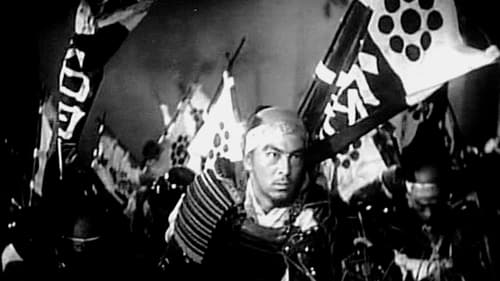
The life, adventures and exploits of warlord Date Masamune the One-eyed Dragon: his early youth as an aggressive warrior, the battles he won until subduing almost all his enemies, the lonely comprehension of knowing that he actually can not take over the whole country because he was born too late.

Okubo
It is a historical drama that follows Katsu Kaishu's efforts to surrender Edo Castle bloodlessly in the first year of the Meiji period.

There is an inn named Asano Ya in the port town, and a beautiful woman works there. Every year, during a local festival, travelling artists and teachers gather from all over the country, including sesame oil sellers and organ grinders. The day before the festival, trouble arises with some horses.

Early Japanese three-part samurai / fantasy serial.

An actor, hit on the head, dreams that he has become legendary one-eyed gangster Mori no Ishimatsu.

Oda Nobuhide
A classic wartime jidaigeki about the life of the famous samurai and first of the "Great Unifiers" of Japan, Oda Nobunaga, with Kataoka Chiezo and Shimura Takashi
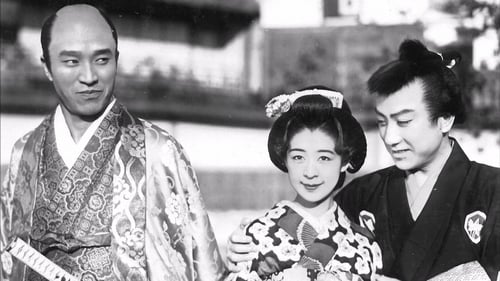
Soshichi Kagawaya
An umbrella maker with a shopping addiction finds himself in dire straits when his debts force him to consider selling his attractive, desirable daughter to a suitor she doesn't love.

The rise to power of Toyotomi Hideyoshi from a farmer's son.
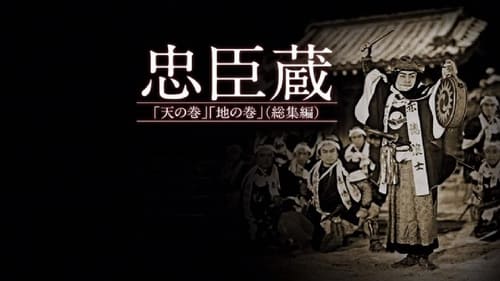
The vassals of the Asano clan, who surrendered the castle & became wanderers, deceive the enemy and the public, wait for an opportunity to avenge their master and his family.

This is Kanjûrô Arashi's first film with Nikkatsu after his independent production company went bankrupt (many of these independent companies went bankrupt shortly after the transition to sound). As he is mostly famous for his portrait of Kurama tengu (and on the other hand, he's the definitive actor for Kurama Tengu as well), Nikkatsu made another version of Kurama tengu, co-directed by Masahiro Makino & Sadatsugu Matsuda who are both sons of Shozo Makino. Scripted by Yoshitake Hisa, a jidaigeki specialist who later scripted several Toei All-Star Jidaigeki.

“Dokuro sen” (The Skull Coin) is the first film adaptation of the popular novel by Kikuo Sumita. The story evolves around the seven cursed coins (the Skull Coin) that are supposed to reveal the secrets of the hidden Tokugawa treasure.

Based on the old tale of Jiraiya, this 1937 version is essentially a revenge story with fantastic visuals.
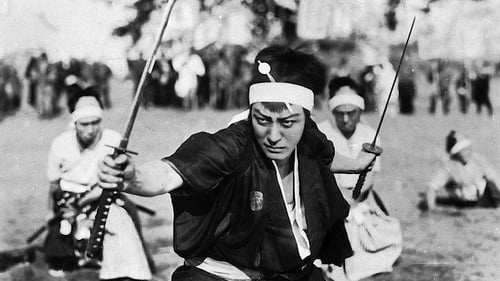
Rokuzaemon Sugano
The tale of Nakayama Yasubei’s duel is famous, even if he in reality probably did not cut down 18 opponents. The story has been related in film, rakugo, kodan and on stage many times, in part because Nakayama later joined the famous 47 Ronin (Chushingura) as Horibe Yasubei. But Makino and Inagaki’s version gives no hint of this more serious future, playing up the thrills and the comedy with Bando’s bravura performance. The multiple pans of Yasubei running to the duel are an exemplar of the experimental flourishes of 1930s Japanese cinema and the final duel, performed virtually like a dance number, is a marker of Makino’s love of rhythm and one of the best sword fights in Japanese film history. The film was originally released under the title Chikemuri Takadanoba (Bloody Takadanobaba) with a length of 57 minutes, but suffered some cuts and a title change when it was re-released in 1952.

The film recounts the tragedy of a young outlaw.

Murakami Umon
Prewar jidaigeki starring Denjiro Okochi

An adventurer and two accomplices unexpectedly invite themselves to a sword tournament and are offered a job with the lord who organized the competition.

Gantaro Path

This film tells the story of a ronin's search for his parents, but primarily is a group portrait of life in a Tokugawa-era tenement.

Jidaigeki film, only a fragment remains of the original film.

In old Edo, Kakunojo (Chiezo), a dandy about town, falls in love with Oichi (Isuzu Yamada), whose merchant family is much beyond Kakunojo's status. He nevertheless pursues her until her initial disgust breaks down into fondness, then romantic feelings, inducing her to abandon her fiance on their wedding day.

In the midst of the depression, two ronin rack their brains to come up with a dishonest scheme. Taking a man from the countryside, they fashion him into Ise Isenokami, the finest swordsman under the sun. Pretending to be his followers, they visit various sword fighting dojo. Out of fear upon hearing the name Isenokami, they pay him off and do not let him enter their training halls. The impostor eventually comes face to face with the real Isenokami after rescuing his daughter, Oyae, who is caught up in a minor incident.

Date Mosui, a young samurai, one day gets a scolding from a nameless ronin that sets him thinking about what life is all about and his ways of living. His frined, Ando Kichinosuke, is alarmed at Mosui's despondency and invites him to his house as his little sister Tsuyu and he try to cheer him up.

Kôchinokami Tôyama
A captivating operetta by Masahiro Makino based on Juppensha Ikku's humorous novel "Tōkaidōchū Hizakurige" starring Chiezo Kataoka and Kyoji Sugi.





















































































































